What is Recycler Folder in Windows? Is it Safe?
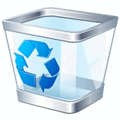
Deleting System Volume Information or its Files
Once you have gained ownership of the System Volume Information folder, it’s then possible to access and delete any of the files inside or the whole folder itself. We highly recommend you DO NOT do this for the System Volume Information folder on your Windows drive (C:). As we said earlier, it contains data for many other system components besides System Restore and could make Windows unstable or even crash. Besides, if you delete it from C, the whole folder will simply be created again automatically.
You can however, safely remove the System Volume Information folder from other drives or partitions such as data drives or external USB/ESATA drives etc. External hard drives can in fact start filling up with restore points from be attached to other computers if they have System Restore enabled. The next issue is everything in System Volume Information, including the folder itself, has the System and Hidden attributes set meaning you can’t simply delete through Windows Explorer.
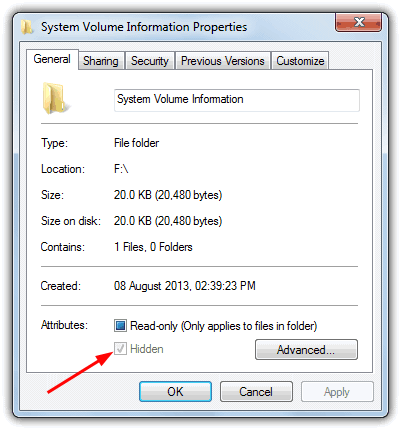
With the help of the Command Prompt, it’s only a few commands that need typing in to remove the whole folder and its contents. Assuming you have already taken ownership of the System Volume Information folder, which you need to do first, here are the commands to delete it from another partition other than C:
Attrib -s -h -r “{drive}:\System Volume Information” /S /D
RD “{drive}:\System Volume Information” /S
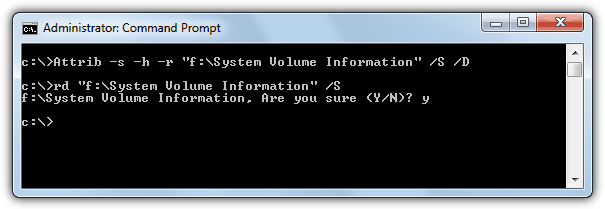
Press Y when asked for confirmation. This will completely delete the folder, make sure you have no windows open which are inside the folder before running the commands. You can use other tools to unhide and unsystem files and folders, have a read of our Reset System and Hidden Attributes article related to this subject.
The $Recycle.Bin and Recycler Folders
As you might expect from their names, $Recycle.bin and Recycler are connected with the Windows Recycle Bin. When you delete a file in Windows Explorer or My Computer etc, the file is stored in the Recycle Bin and not completely deleted from the system. These folders are the holding location for the file while it remains in the Recycle Bin. The file remains in there until you empty the Recycle Bin or restore the file back again. But there are 2 hidden folders we are talking about here and you will likely have only 1 of them, so what’s the difference?
The simple answer is the Recycler folder is found on systems running Windows NT, 2000 or XP with hard drives that are NTFS formatted. The $Recycle.bin folder is found on Windows Vista and above systems. These folders aren’t present though on storage media like flash drives, memory cards or network drives. If you have a dual boot system with XP and Vista or 7 for example, or an external hard drive that has been plugged into different operating systems, there might actually be one of each created on your drive.
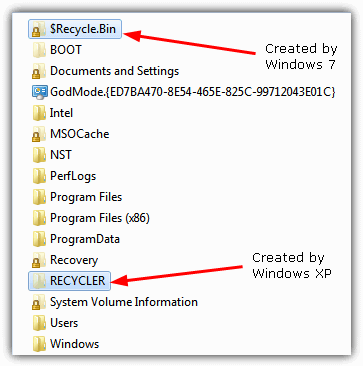
You can delete these folders without causing too much trouble to Windows and all you will lose is any files that are currently held in the Recycle Bin. In actual fact, the main folder itself will just get re-created again by Windows the next time a file is deleted so it can’t be removed permanently. The exception is if you delete Recycler for example and never connect the drive to an XP system, or vice versa.
The best solution is therefore to delete the folders inside of the main $Recycle.bin or Recycler folder as they won’t return and will delete all recycled content. This is a useful trick if for some reason Recycle Bin content has become corrupted as it won’t delete itself by emptying the bin normally. This will also delete Recycle Bin content for all users not just the current user.
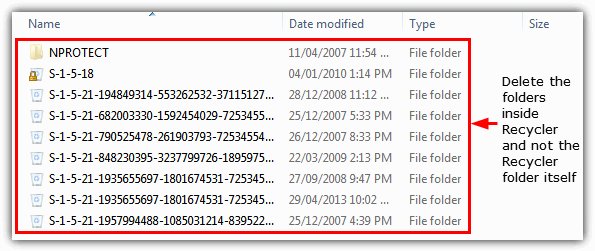
If you’re unable to delete files inside the Recycle folder, you can use a number of tools such as Unlocker to unlock and delete files that are being used. Doing this is not something you need to do very often, only if you suspect there has been a problem deleting Recycle Bin content or receive any Recycle Bin related errors.



User forum
68 messages